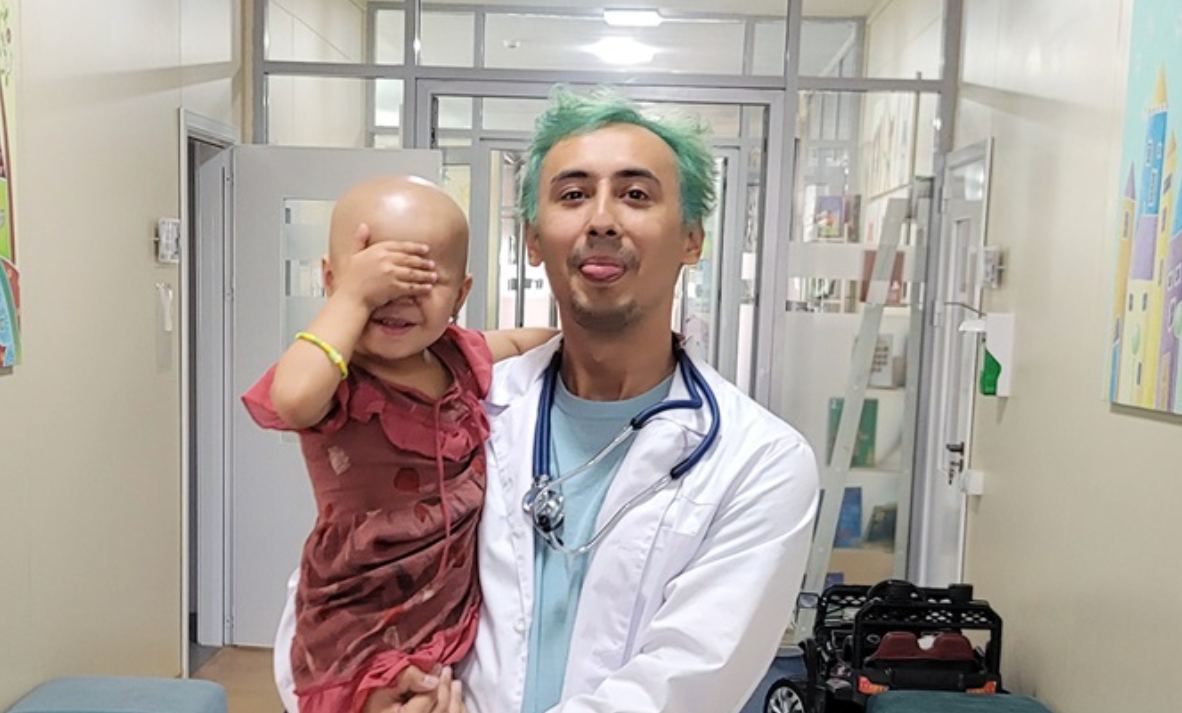Nestled in the Tashkent region, Taskin Hospice stands as a beacon of hope in Uzbekistan's landscape of pediatric palliative care. Led by Dr. Rustambek Norbaev, Chief Physician at Taskin, this hospice signifies a crucial milestone in the nation's journey toward providing essential palliative care services for children, WHO reports.

Dr. Norbaev's Vision
Dr. Norbaev's journey towards pediatric palliative care began with profound encounters that ignited his dedication to the cause. As a young medical student, he was inspired by Dr. Ziyaev Yahyo's lectures on hospice and palliative care, shaping his career path. Subsequently, a meeting with specialists from St. Jude Children’s Research Hospital during a WHO Global Initiative for Childhood Cancer meeting further fueled his passion for pediatric palliative care.
Challenges in Pediatric Palliative Care
In Uzbekistan, which has a population exceeding 36 mn, there are only 200 beds dedicated to palliative care for adults nationwide, but these are exclusively reserved for cancer patients. Although it is challenging to gauge the exact demand for palliative care services across the population, statistics from the WHO's International Agency for Research on Cancer (IARC) estimated a cancer incidence rate of 10.7 per 100,000 individuals under the age of 15 in Uzbekistan in 2022.
Comprehensive Care at Taskin Hospice
Taskin Hospice offers holistic care to young cancer patients and their families. At present, the hospice provides care for 20 young cancer patients along with their parents. The staff includes 4 physicians, 7 nurses, 2 psychologists, 1 social worker, 6 support staff, and a therapy dog named Lisa. Each room, shared by a child and one parent, is equipped with essential amenities such as a bathroom, television, telephone, refrigerator, air conditioning, heater, and internet access. Additionally, there is an art room available for children to engage in painting and pottery activities.
Dr. Norbaev states, “We provide pain management, anti-sickness medications and nutritional support for our hospice patients, and psychosocial assistance to patients and their parents. Generally, the period of stay is 10 days; however, depending on the situation, patients may remain in the hospice until the end of their days. Depending on the availability of beds, we can also provide social respite services for patients receiving high-dose chemotherapy and pain management for patients with serious chronic pain syndrome.”
Dr. Norbaev advocates for universal access to high-quality palliative care, recognizing its potential to enhance patient and family well-being.
The World Health Organization (WHO), in collaboration with local stakeholders, plays a pivotal role in advancing pediatric palliative care in Uzbekistan. Through initiatives like the Global Initiative for Childhood Cancer, WHO aims to improve access to quality palliative care for children and adults.
Comments (0)